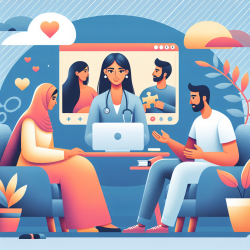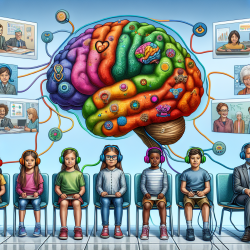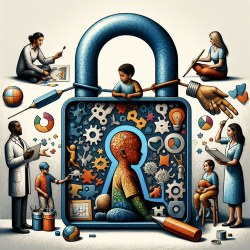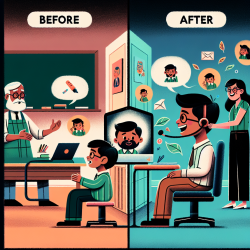The study "Couples Therapy Delivered Through Videoconferencing: Effects on Relationship Outcomes, Mental Health and the Therapeutic Alliance" by Kysely et al. (2022) offers crucial insights into the efficacy of videoconferencing for couples therapy. With increasing demand for mental health services and advancements in technology, videoconferencing is emerging as a viable alternative to traditional face-to-face therapy.
Data from this randomized controlled trial involving 30 couples, who participated in the Couple CARE program, indicated no significant differences in therapeutic alliance ratings, relationship satisfaction, or mental health outcomes between videoconferencing and face-to-face groups. This evidence suggests that videoconferencing can be as effective as traditional methods, particularly for those without access to in-person therapy.
Here are some key takeaways for practitioners:
- Therapeutic Alliance: The study found that therapeutic alliance ratings increased significantly over time for both groups, demonstrating that strong therapeutic relationships can be established via videoconferencing.
- Relationship Satisfaction: Both videoconferencing and face-to-face groups showed significant improvements in relationship satisfaction, maintained at the 3-month follow-up.
- Mental Health Outcomes: Significant reductions in depression, anxiety, and stress were observed post-intervention, with effects on anxiety and stress maintained at follow-up.
- Participant Satisfaction: High levels of participant satisfaction were reported for both groups, indicating acceptance and positive reception of videoconferencing as a therapy medium.
These findings provide robust support for integrating videoconferencing into couples therapy practices. It is particularly beneficial for clients in rural or remote areas, military families, or those with limited access to specialized therapists.
Practitioners are encouraged to explore videoconferencing as a flexible, effective, and accessible option for delivering couples therapy. Further research is recommended to examine long-term outcomes and the applicability of videoconferencing across different therapeutic approaches and populations.
To read the original research paper, please follow this link: Couples Therapy Delivered Through Videoconferencing: Effects on Relationship Outcomes, Mental Health and the Therapeutic Alliance.










